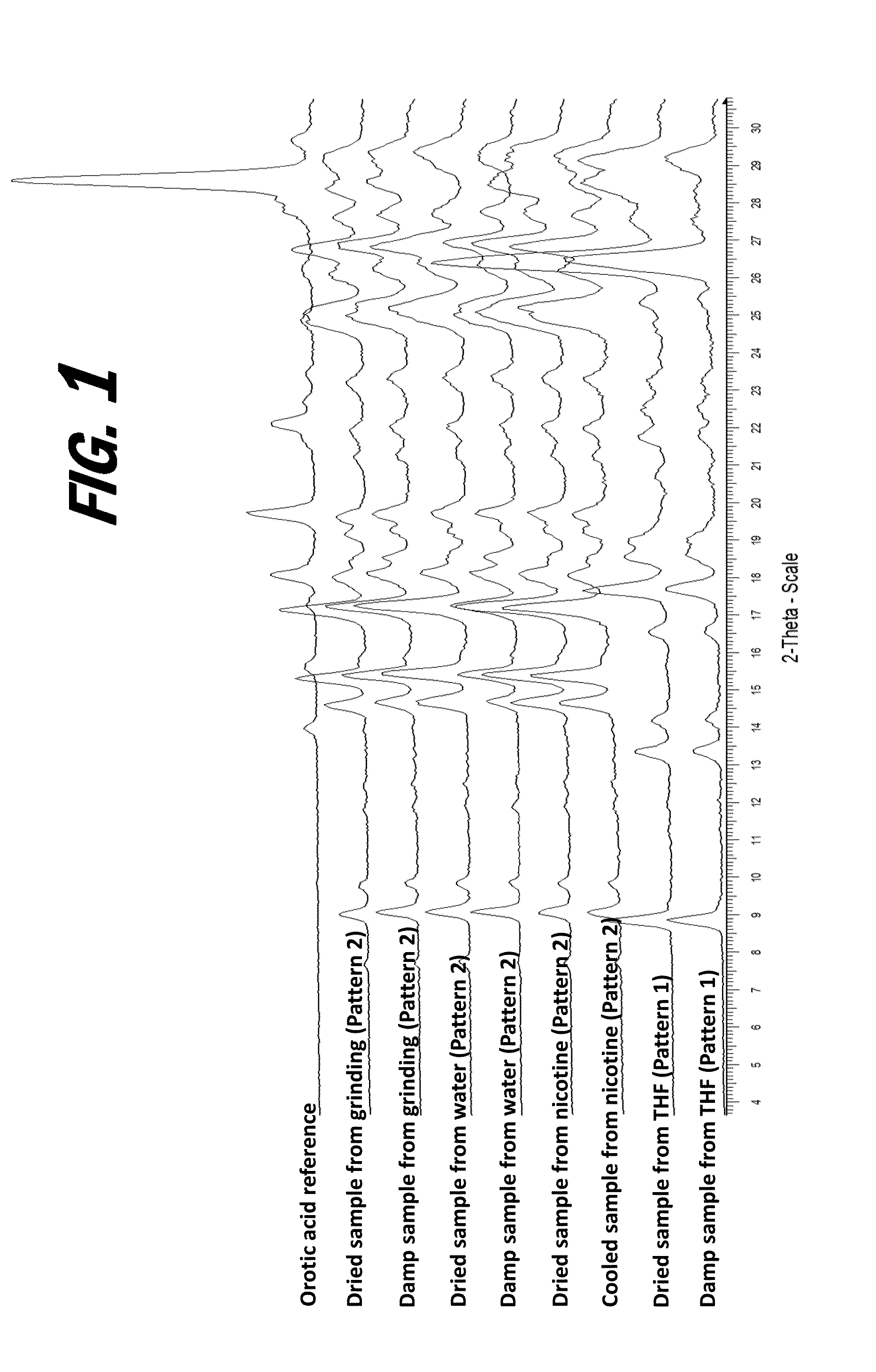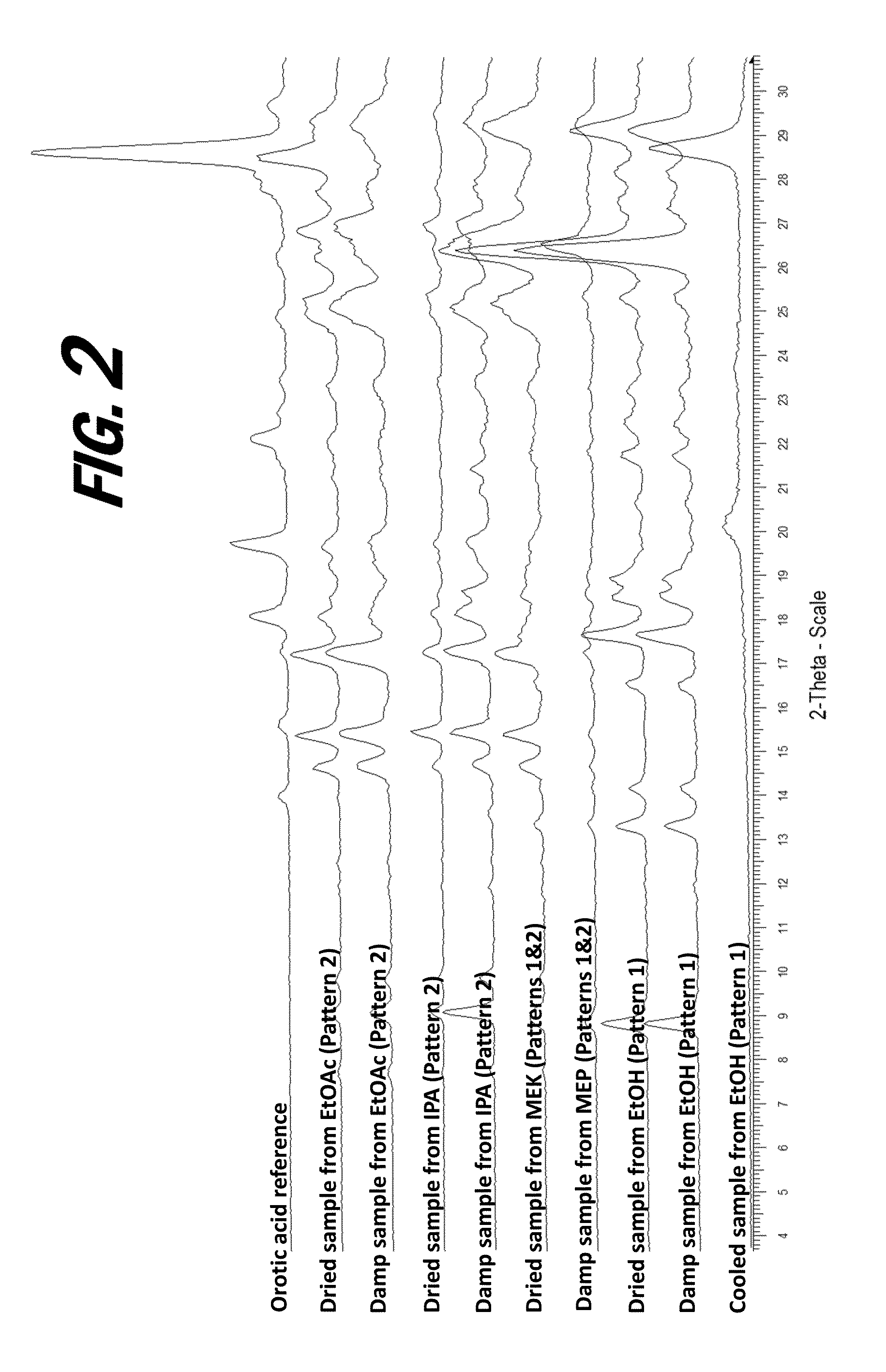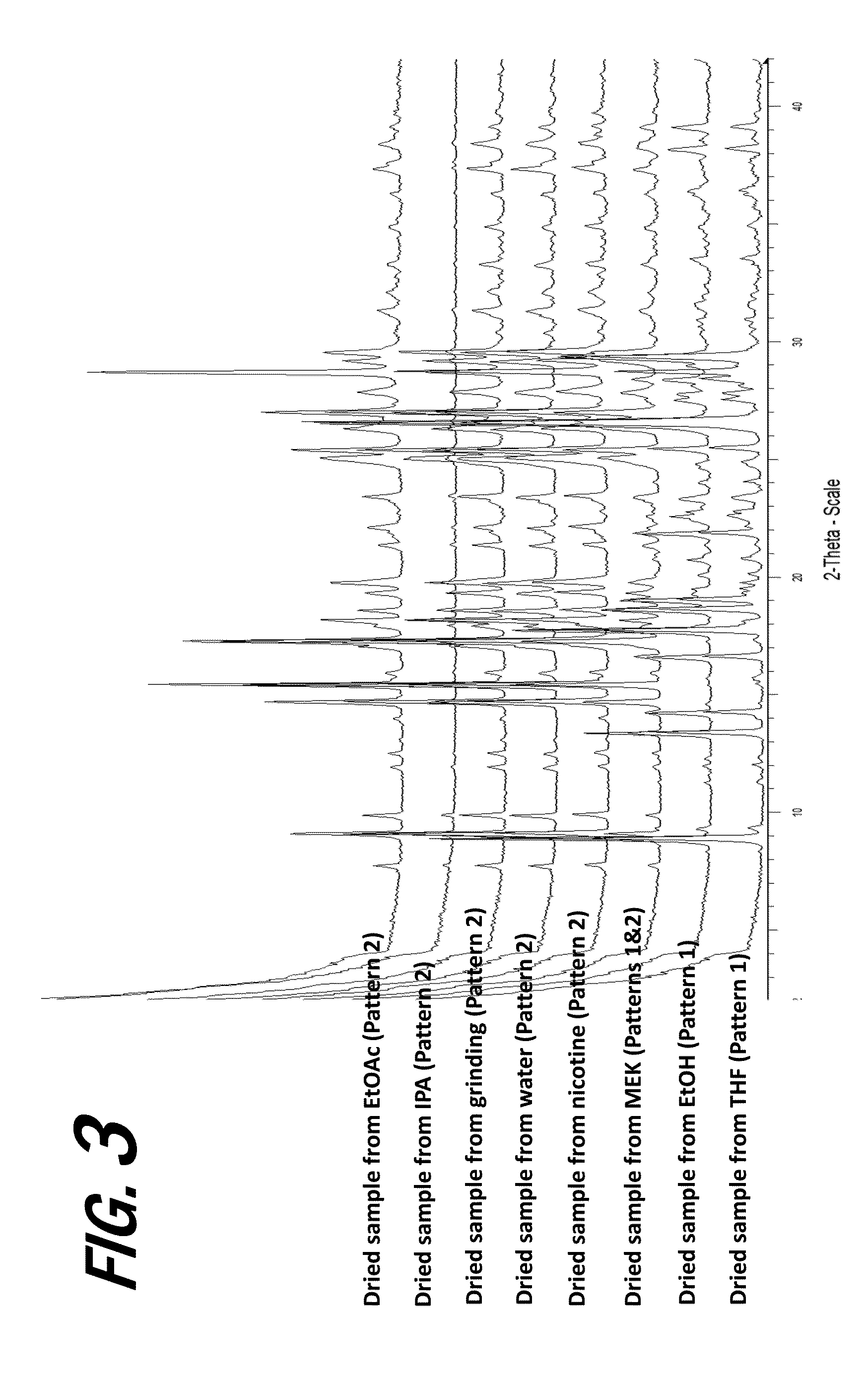Nicotine salts, co-crystals, and salt co-crystal complexes
a technology of co-crystals and nicotine salts, which is applied in the direction of aerosol delivery, tobacco, spray delivery, etc., can solve the problems of difficult handling of nicotine extracts, delivery of considerable quantities of incomplete combustion and pyrolysis products, and inclusion of nicotine extracts into certain tobacco products
- Summary
- Abstract
- Description
- Claims
- Application Information
AI Technical Summary
Benefits of technology
Problems solved by technology
Method used
Image
Examples
example 1
Salts of Nicotine with Orotic Acid
[0160]A screening experiment is first conducted to evaluate a solvent free method for the formation of a salt of orotic acid. Orotic acid (50 mg+ / −1 mg) is weighed into a glass vial and (S)-Nicotine (2 molar equivalents) is dispensed into each vial, vials are stirred at 50° C. for 1 hour, cooled to 5° C. at 0.1° C. / min, and stirred at 5° C. overnight. Upon the addition of nicotine, the material was observed to be a suspension and the material remained a suspension after 1 hour. After cooling, the material was observed to be a pink suspension. After stirring at 5° C. overnight, solids are sampled and characterized by XRPD. The XRPD analysis results indicate that the solid present in the vial includes a new crystalline phase form, indicative of the formation of an orotic acid salt.
[0161]Various screening experiments are next conducted to evaluate alternative (solvent-based) means for the preparation of orotic salts of nicotine, as the slurrying method...
example 2
Salt of Nicotine with Fumaric Acid
[0174]A screening experiment is first conducted to evaluate a solvent free method for the formation of a salt of fumaric acid. Orotic acid (50 mg+ / −1 mg) is weighed into glass vials and (S)-Nicotine (2 molar equivalents) is dispensed into each vial, vials are stirred at 50° C. for 1 hour, cooled to 5° C. at 0.1° C. / min, and stirred at 5° C. overnight. Upon the addition of nicotine, the material was observed to be a suspension and the material remained a suspension (with undissolved acid) after 1 hour. After cooling, the material was observed to be a solid brown solution. After stirring at 5° C. overnight, solids are sampled and characterized by XRPD. The XRPD analysis results indicate that the solid present in the vial comprises crystalline material, and peaks for fumaric acid as well as additional peaks are observed. The material is matured and after 1 week, the material is in the form of a brown oil / white solid. Again, XRPD analysis of this materi...
example 3
Salts of Nicotine with L-Pyroglutamic Acid
[0187]Under most conditions studied (comparable to those described above with respect to attempts to prepare salts from nicotine and orotic acid and fumaric acid), mixtures of L-pyroglutamic acid and nicotine yielded oils or gums. However, in neat nicotine, some crystalline material is obtained.
[0188]Pyroglutamic acid (50 mg+ / −1 mg) is weighed into a glass vial and (S)-Nicotine (2 molar equivalents) is dispensed into the vial, the vial is stirred at 50° C. for 1 hour, cooled to 5° C. at 0.1° C. / min, and stirred at 5° C. overnight. Upon the addition of nicotine, the material was observed to be a suspension and the material remained a suspension (with undissolved acid) after 1 hour. After cooling, the material was observed to be a white solid. After stirring at 5° C. overnight, solids are sampled and characterized by XRPD. The XRPD analysis results indicate that the solid present in the vial is partially crystalline. This material was identifi...
PUM
 Login to View More
Login to View More Abstract
Description
Claims
Application Information
 Login to View More
Login to View More - R&D
- Intellectual Property
- Life Sciences
- Materials
- Tech Scout
- Unparalleled Data Quality
- Higher Quality Content
- 60% Fewer Hallucinations
Browse by: Latest US Patents, China's latest patents, Technical Efficacy Thesaurus, Application Domain, Technology Topic, Popular Technical Reports.
© 2025 PatSnap. All rights reserved.Legal|Privacy policy|Modern Slavery Act Transparency Statement|Sitemap|About US| Contact US: help@patsnap.com



